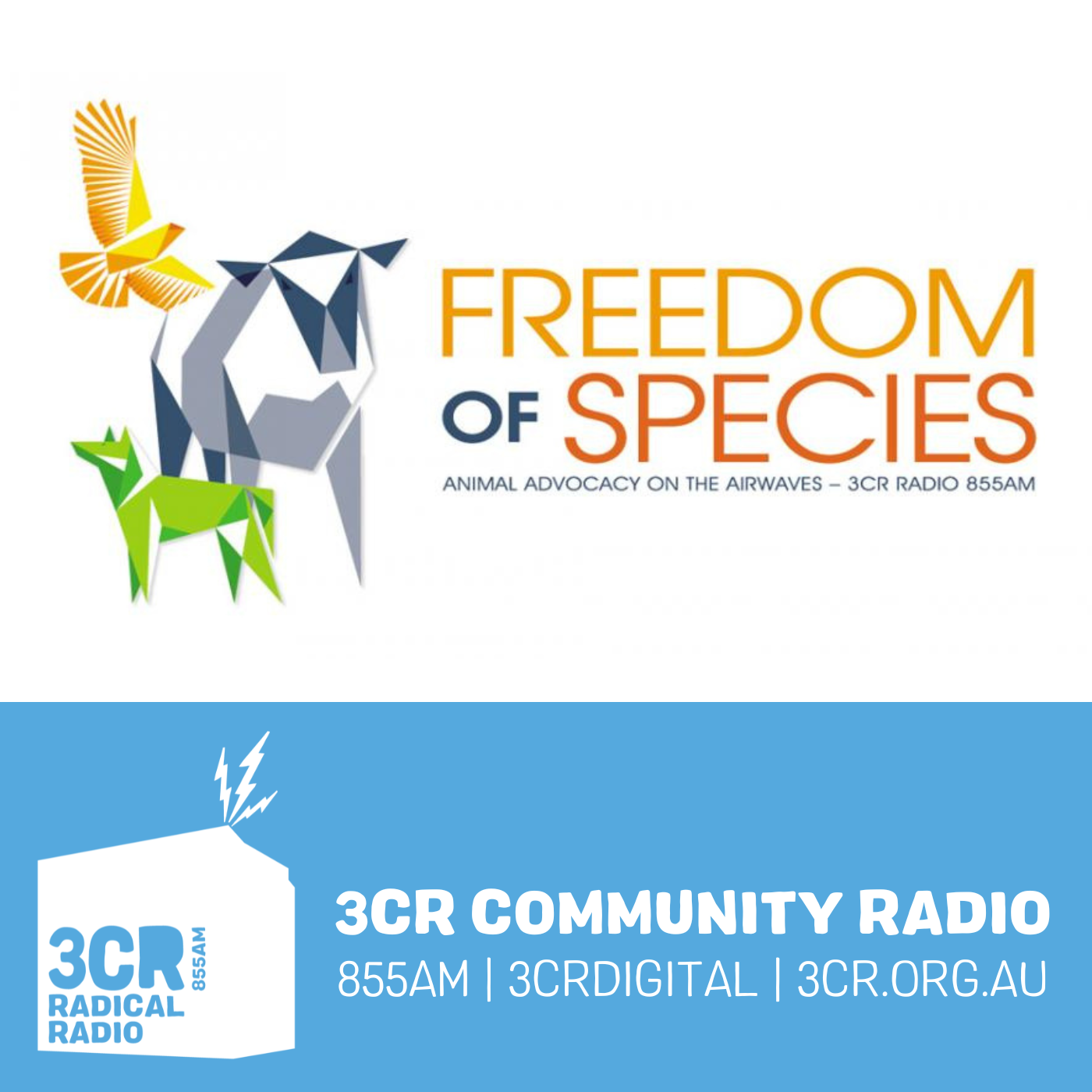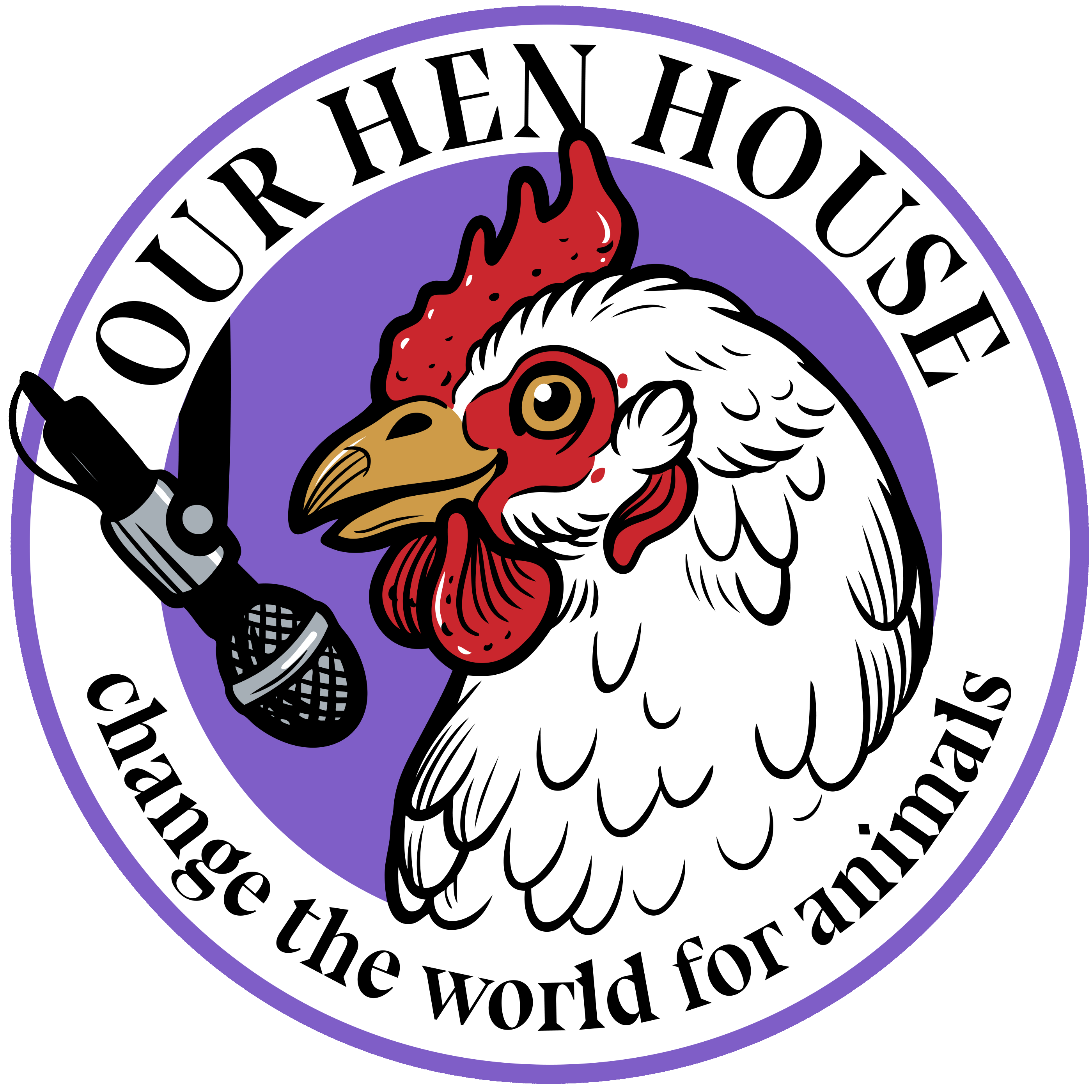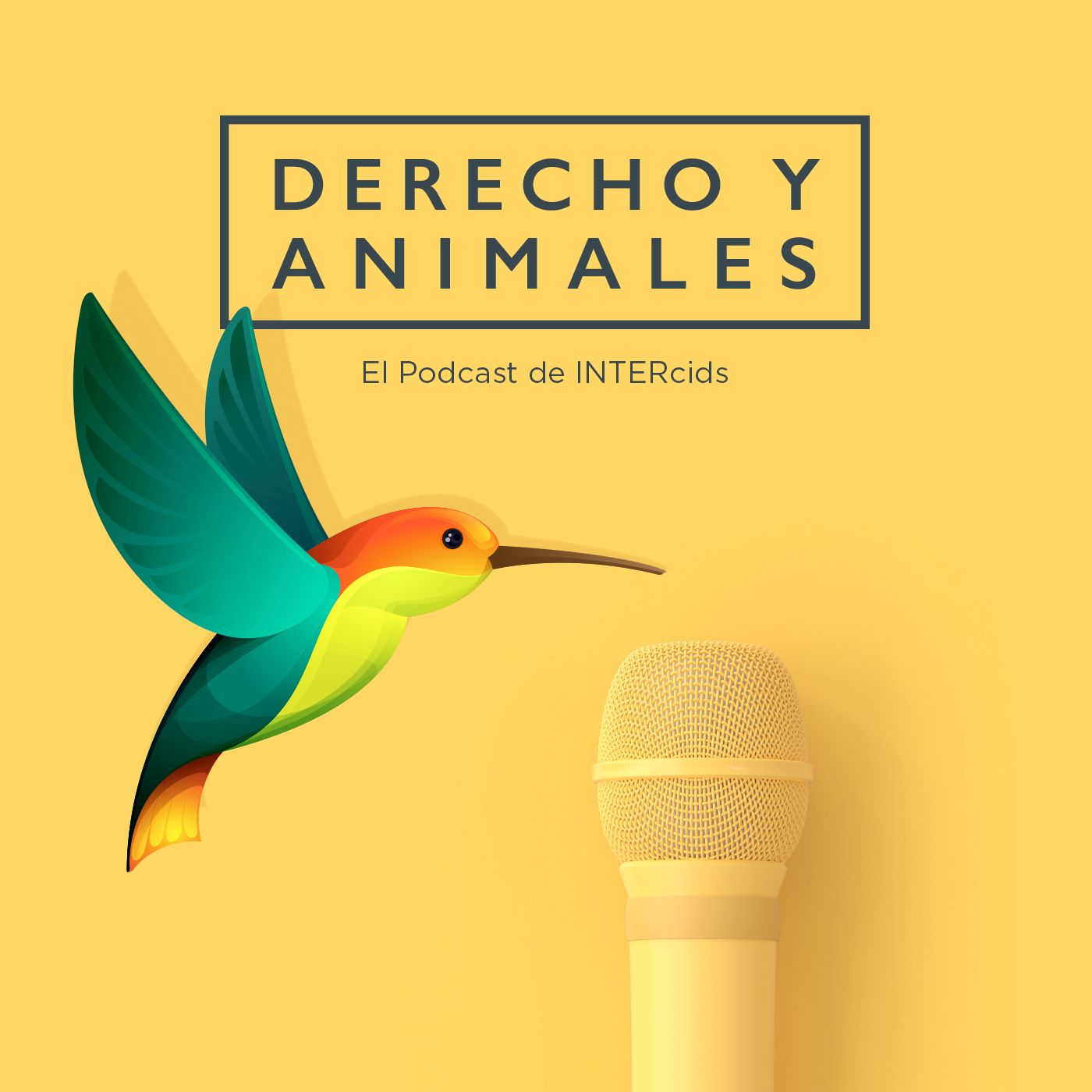
The Animal Turn
Animals are increasingly at the forefront of research questions – Not as shadows to human stories, or as beings we want to understand biologically, or for purely our benefit – but as beings who have histories, stories, and geographies of their own. Each season is set around themes with each episode unpacking a particular animal turn concept and its significance therein. Join Claudia Hirtenfelder as she delves into some of the most important ideas emerging out of this recent turn in scholarship, thinking, and being.
The Animal Turn
S6E4: Violence with Dinesh Wadiwel
Use Left/Right to seek, Home/End to jump to start or end. Hold shift to jump forward or backward.
In this episode Dinesh Wadiwel discusses how violence is an important concept in political theory. He outlines how violence can be intersubjective, structural, or epistemic. He delves into how violence and coercion are tools used to try and achieve domination and that there is a political imperative to call violence what it is.
Date Recorded: 25 September 2023.
Dinesh Joseph Wadiwel is Associate Professor in human rights and socio-legal studies at University of Sydney. He is author of Animals and Capital (Ediburgh UP, 2023), The War against Animals (Brill, 2015) and is co-editor, with Matthew Chrulew of Foucault and Animals (Brill 2017). He is also co-editor of Animals in the Anthropocene: Critical Perspectives on Non-Human Futures (Sydney UP). He is a member of the Multispecies Justice research group at the University of Sydney, and Chair of the Australasian Animal Studies Association. In addition, Dinesh is a disability rights researcher, and has recently been part of a team of researchers who have produced two reports for the Australian Royal Commission into Violence, Abuse, Neglect and Exploitation of People with Disability. Learn more about Dinesh here.
Featured:
- Australasian Animal Studies Association
- The War against Animals by Dinesh Joseph Wadiwel
- Animals and Capital by Dinesh Joseph Wadiwel
- The Beast and the Sovereign by Jacques Derrida
- Justice and the Politics of Difference by Iris Marion Young
- Foucault and Animals edited by Matthew Chrulew and Dinesh Joseph Wadiwel
Animal Highlight: European Wild Cat
The Animal Turn is part of the iROAR, an Animals Podcasting Network and can also be found on A.P.P.L.E, Twitter, and Instagra
A.P.P.L.EAnimals in Politics, Law, and Ethics researches how we live in interspecies societies and polities.
iROAR Network
iROAR brings together podcasts that aim is to make the world a better place for animals.
Disclaimer: This post contains affiliate links. If you make a purchase, I may receive a commission at no extra cost to you.
The Animal Turn is hosted and produced by Claudia Hirtenfelder and is part of the iROAR Network. Learn more on our website.
- Leave a Review on Podchaser
- Check out The Animal Turn Merch.
- Support us on Patreon, Buy Me a Coffee, and Buzzsprout.
00:00 - Introduction
- It’s season 6 and this season we are focusing on animals and politics.
- Dinesh Joseph Wadiwel is Associate Professor in human rights and socio-legal studies at University of Sydney. He is author of Animals and Capital (Ediburgh UP, 2023), The War against Animals (Brill, 2015) and is co-editor, with Matthew Chrulew of Foucault and Animals (Brill 2017). He is also co-editor of Animals in the Anthropocene: Critical Perspectives on Non-Human Futures (Sydney UP). He is a member of the Multispecies Justice research group at the University of Sydney, and Chair of the Australasian Animal Studies Association. In addition, Dinesh is a disability rights researcher, and has recently been part of a team of researchers who have produced two reports for the Australian Royal Commission into Violence, Abuse, Neglect and Exploitation of People with Disability.
04:08 – A little about Dinesh and the Australasian Animal Studies Association
- Been at the University of Sydney or 12 years
- Previously working in Non-for Profit
- Started to think about animals while thinking through theories of violence and power
- Chair of the Australasian Animal Studies Association, one of the most dynamic associations in the world with close to 200 members.
- Upcoming conference in Sydney
- Has a Critical Animal Studies Lens which is also reflective of changes in animal studies.
- Animals have long been “an object of scholarship” but CAS compels us to ask political questions – Claudia
11:22 – The War Against Animals
- The War Against Animals was an attempt to look at our relations with animals in a systematic way, paying attention to questions of violence, coercion and domination
- Most relations with animals involve forms of violence and domination.
- At the time of writing books this kind of structural analysis was missing from the animal rights discourse
- “What does it tell us about our fundamental ways of being with other nonhumans” – Dinesh
- Felt there was a lot to say about the extent and intensity of violence directed against animals, yet this systematic, wide-scale violence is relatively obscured.
- One of the findings of the book is that one way we can describe this systematic violence is “war”
- German Theorists of war Carl von Clausewitz – who makes the argument that war is a kind of violence that aims at domination. Dinesh thought this was a useful way to think about what humans do to animals.
- War was a useful way of framing mass scale, corporate violence.
14:40 – Violence vs. cruelty
- There seems to be a connection between animals and child abuse.
- Violence directed at animals was often called cruelty instead of violence.
- Violence is an important word in political theory, but it has not been used to describe the experiences of animals and this is an epistemic problem.
- In legal contexts cruelty is used to describe acts of violence directed at animals that are deemed to be non-permissible.
- Mass scale violence directed at pigs in factory farms is okay but treating a dog in the home the same way is impermissible.
- There is something about consistently using the concept of violence – “let’s call violence what it is, violence” – Dinesh
- Animals are often not thought of as victims of systematic violence.
- Lots of work of feminists is to highlight the ways in which women experience systematic violence, actions that are often deemed as natural or normal. There are similar problems in the disability space.
- To treat the object of violence that cannot be violated – this is almost a ruse of violence. We see this strategy of violence across many fields and it is almost routine when it comes to animals
20:26 – Different ways for thinking about violence
- “Epistemology is important to consider” – Dinesh
- In the War Against Animals describe 3 different ways to think about violence
- One is individual or intersubjective violence – when one individual punches another, for example.
- Another is structural or institutional violence that reproduce violence. The individual is less in focus but institutions and practices systematically work against groups of individuals
- A third violence is epistemic violence, and this is related to our knowledge systems and hierarchizes individuals. An anthropocentrism dominates our society.
- One example are the pictures you see in butcher shops - “this illustrates the full extent of the epistemic erasure of the reality of animal as a subject of violence” – Dinesh
- There are lots of example of this epistemic erasure in our societies, animal agriculture subjects animals to what could be called “a living hell” will say they give the animals a good life.
- Stepping away from epistemic violence is extremely difficult.
- These different violences could be thought of has happening at different scales – individual, structural, epistemic
- These types of violence are not necessarily hierarchized but might be thought of as a mutually reinforcing circle.
- If we want change we need to be constantly aware of these three levels
- “Our knowledge systems have to change, if we want change” – Dinesh
30:00 – Animal Welfare and Animal Rights
- There is a risk that if we make violence more palatable that we might deepen epistemic violences.
- The hard division between animal welfare and animal rights is possibly overstated.
- That said, lots of animal welfare has worked in concert with maintaining the domination of animals.
- In Animals and Capital is an example given is how animal welfare is used to make animal agriculture more efficient – such as the curved chute.
- That said there are some animal welfare reforms that might challenge the three types of violence
34:44 – Domination
- Typically, a one-sided or unilateral relationship where one party seeks to achieve, almost universally, their own interests over another party.
- This is often an objective in war, at an interpersonal level it happens in a variety of ways.
- Violence and coercion aren’t accidents, their goal is to achieve domination.
- This can be seen with agricultural and companion animals.
- We use systematic controls over movement, we control forms of sociality, we use strict reproductive control, constrain their sexual lives, will have forced medical interventions, and their deaths might be a decision by their owner. These are all acts of violence and coercion and could be described as domination.
- Have come up several times in this season.
- We hold dominance and affection at the same time in our minds. There is significance in these contradictions.
40:50 – Violence among Animals, Sovereignty, Justice
- What about violence among animals, or is that just a red herring?
- Jacques Derrida, final lectures The Beast and the Sovereign, makes a remarkable observation about violence and its relationship with sovereignty
- Others, like Sue Donaldson and Will Kymlicka have built on ideas of sovereignty
- Derrida he makes an observation that all life is kind of violent in order to preserve itself. But he argues that only humans make the claim that their violence legitimates them as sovereigns.
- Humans believe their violence directed at other animals is justified, and perhaps this arrogance is unique to humans.
- Other species are not running around claiming they are superior.
- Just because violence might happen in animal communities doesn’t excuse our mass scale violence.
- While violence is everywhere there are more and more narratives that are not accepting of violence
- We need to be clear that our goal needs to be the removal of violence against animals
52:40 – Tools of Violence and Politics
- Violence is an important concept in political theory and is largely under theorized in the animal space. Looking at animals allows us to understand the debate of what violence is in different ways
- “We often mistake the form of violence with what violence actually is itself” – Dinesh
- “Violence is something else that is tied up with the tools of violence which is the experience of a radically non-consensual act. That is often what violence is” – Dinesh
- Different tools are used to make violence has but sometimes you don’t need a tool, like psychological coercion.
56:00 – Domestic Violence
- With animals there are unique forms of violence that are not necessarily the same in human affairs.
- Domestic violence is pervasive and can pervade the way you think and move – and this might make you think about pet-keeping in new ways.
- Domestic violence only makes sense because of a ruthless public/private split.
- “Whether we like it or not the law grants life and death powers of domination of individuals within the domestic sphere over animals” – Dinesh.
- Fish experience massive amounts of violence in the home.
01:01:00 – Fish and Animal Rights
- There is something curios bout the fact that we kill and use more fish than any other animal on the plant, there is something interesting about how little animal rights has had to say about fish.
- Deep epistemic effect of how we have hierarchized animals.
- Domescration and the violence of domestication practices – example of goldfish
- Epistemic invisibilities.
01:03:17 – Quote (Iris Marion Young)
- Never defined domination as a concept in The War Against Animals, but if he was going to pressed for a definition this is what he would probably choose.
- “Domination consists in institutional conditions which inhibit or prevent people from participating in determining their actions or the conditions of their actions. Persons live within structures of domination if other persons or groups can determine without reciprocation the conditions of their action, either directly or by virtue of the structural consequences of their actions.” Iris Marion Young, Justice and the Politics of Difference, 2011, 38.
- Most of our structures and relations with animals involve domination.
- Foucault, domination, and power
- Foucault and Animals
- Push back with using the concept of violence.
- There is political imperative to call some relations violence even when institutions would prefer other language.
01:10:20 –When is something not violent?
- Is there a risk of everything being thought of as violent?
- Should ask the victim if it is violence.
- Focusing on resistance and technology to deal with the resistance of animals tells us animals would prefer to engage in different ways.
- In inventing some technology we show that animals do not consent to those relations.
01:14:40 – What are you currently working on?
- At the University of Sydney, most reliable place to find Dinesh’ details.
- Animals and Capital – continues the analysis from The War Against Animals, pivots around thinking about the value theory. The handshake between anthropocentrism and capital.
- Started work on a new book project tentatively called “Animals and the State” and is influenced Catharine A. MacKinnon Toward a Feminist Theory of State.
- Need a more nuanced understanding of the state.
01:18:00 – Animal Highlight: European Wild Cat
- When you talk about the European wild cat you have to talk about the domestic cat as well.
- European wild cats are small wild cats who live across Europe (mainly Scotland) and look a lot like a black and white tabby cat.
- A lot of work done to differentiate European wild cats from domestic cats – while they are different species they often interbreed.
- Hybrid offspring are fertile which is a challenge for conservation of the European wild cat.
- Some conservation tactics are violent including captivity and control.
- Previously on the Animal Turn, Lauren van Patter discusses how the concept of feral is not value neutral.
- John Scasta and negative connotations as “pestilent undertones”
- We don’t view feral animals as worthy of our protection, and we view them as a threat to conservation.
- Care and coercion can look very similar.
- Conservation can sometimes stand at odds with a rights based framework, see for the example Marius the giraffe.
- Hybridization is how new species emerge, like the wisent. We are happy about some but concerned about many others.
Credits
Thank you to Animals in Philosophy, Politics, Law and Ethics (A.P.P.L.E) for sponsoring this podcast; Gordon Clarke (Instagram: @_con_sol_) for the bed music, and Jeremy John for the logo. This episode was edited by Christiaan Mentz and produced by the host Claudia Towne Hirtenfelder.
Show notes compiled by Claudia Hirtenfelder
Podcasts we love
Check out these other fine podcasts recommended by us, not an algorithm.

The Animal Highlight
Claudia Hirtenfelder
Knowing Animals
Josh Milburn
Species Unite
Species Unite
The Deal with Animals with Marika S. Bell
Marika S. Bell
The Other Animals
Laurent Levy
Beyond Species
Beyond Species
The Anthrozoology Podcast
Anthrozoology Podcast
Freedom of Species
The Freedom of Species Team
Our Hen House: Vegan & Animal Rights Movement | Stories from the Frontlines of Animal Liberation
Jasmin Singer and Mariann Sullivan
Derecho y Animales
Derecho y Animales
Storytelling Animals
Dayton Martindale
Species
mackenmurphy.org
Animal Law Matters
K & R Animal Law
The Humanimal Connection
Humanimal Trust
The Animal That Changed You
Katya Lidsky
Think Like a Vegan
Emilia Leese
The Shifting Lens: Viewing the Animal Experience
Tiamat Warda Rebecca Madrid
The Salmon People
Canada's National Observer
Comme un poisson dans l'eau
Victor Duran-Le Peuch

